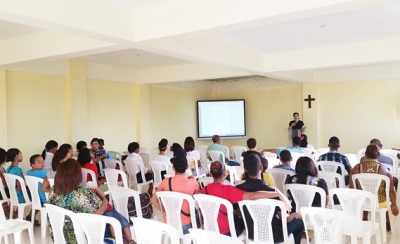Mass Evangelism and the Phenomenon of Mega Churches

Mega-churches are a phenomenon among evangelical Protestants in America, as seen by the rise in huge communities and congregations numbering the thousands meeting every Sunday. Some of these churches have been the subject of controversy regarding their validity and version of the gospel, but no one can certainly deny the numbers being brought in that don't show signs of dying down.
As a result, something must be working that encourages this growth and keeps the members involved and passionate about spreading their faith. It appears this commonality is seen largely through small group activities and programs that support a vast majority of church attendees as well as those in the surrounding community who may not be directly involved with the church. By focusing and challenging the believers to form connections with neighbors, organizations, clubs, and Bible studies, the church becomes an interconnected hive of activity and relationships. It's no wonder that the mega-churches routinely bring in such vast numbers; the appeal of joining one is immense.
A sense of belonging is easily one of the most powerful factors regarding human psychology. The foot in the door phenomenon is a precise example of this subject. By encouraging someone into committing at the lowest level, it becomes incredibly easier to move that person into a larger commitment afterwards. For example, if a sales person wants to sell a family an expensive product, buying that product represents an extremely large commitment that very few would be willing to make initially. However through smaller commitments progressively earned through answering even the most basic of questions, the salesman receives much more confidence that the family in question will be willing to commit farther into the deal that is proposed. Mega-churches employ this same psychological tool with small group communities.
Involvement in faith is certainly a large commitment, especially at the level of evangelism, ministry, and service. This is mostly due to the fact that it obviously requires the individual to set up faith to accept the beliefs. As a result, these churches form tight knit communities very well. They are self maintaining and grow through internal expansion as people bring others they know through outside relationships. Others in the community come because of the sense of belonging. It is important to note however that these methods do not ensure an individual's faith or willingness to commit to believing in Jesus Christ. A church with thousands of participants does not promise that everyone is willing to take up their cross. Such evangelism indeed looks powerful and allows mega-churches to perform a lot of charity and hold impressive events. This article is not meant to endorse such methods, but rather examine the reasons behind why such methods are merely successful.



